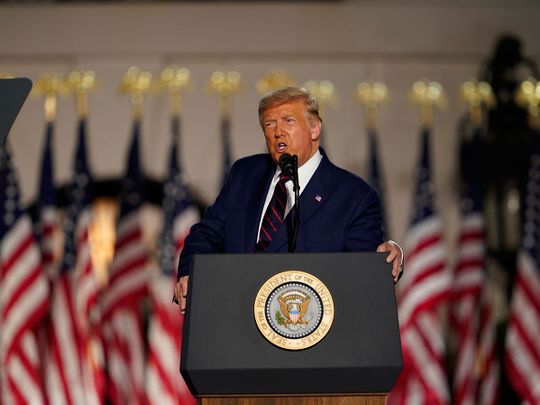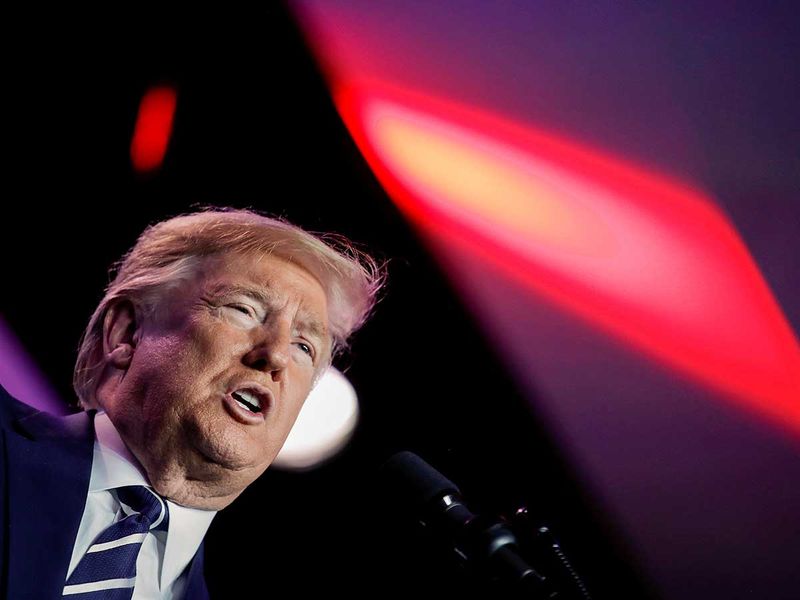
No president throughout the 246-year history of the American Republic has ever been indicted of a federal crime, yet in today’s America millions of Americans now believe — given that more and more powerful proof of violations of federal law by Donald J. Trump continues to emerge from the historic hearings held by the Jan. 6 select committee in the US Congress — that the former president should be indicted and sundry legal experts speculate that he would be.
Let’s face it, indicting, prosecuting and finally convicting a president in a court of law is a traumatic experience for a nation to endure, the kind that can gnaw away at the collective psyche of a people like a raw wound — and continue to do so for a generation or more after the fact.
And beyond the trauma, there is the danger, as in the case of the of the United States, of further polarisation in a society already more polarised today than it had ever been, even during the anti-communist hysteria of the McCarthy era, the political and civil unrest of the Sixties and the Watergate scandal, the latter spanning its own equally historic hearings in Congress that finally resulted in the resignation of President Richard Nixon, who was later escaped by a hair criminal charges after his successor in the White House granted him a presidential pardon — much to the chagrin of many an American at the time.
Read more
- Capitol attack probe: Trump should be held accountable for trying to overturn 2020 election, says committee
- Jan. 6 probe: Trump sets rally after ‘unhinged’ White House meeting
- In first return to Washington, Trump hints at 2024 White House run
- Will the US Justice Department finally indict Donald Trump?
No charges, of course, have yet been filed against Donald Trump by the Justice Department, the only branch of government authorised by law to do so. The select committee, which held its 8th and last summer hearing last week, cannot file criminal charges, though it can — and most likely will in this case — refer its findings to the US Attorney General for consideration. Yet a road map for un unprecedented act in American history may already be getting drawn: Charging a former president with criminal intent, in this case, sedition.
Social critics in the media appear divided over the wisdom of such an act, with some arguing that the question is not whether Trump “deserves” but whether he “should” be indicted. And the answer they give is that he should not — and not because he’s innocent but because of the heavy cost in political and social turmoil the court proceedings would exact on the country.
Richard Lowry, editor of National Review, wrote a piece in Politico soon after the select committee had completed its first hearing where he claimed that, while the conduct of the former president of the United States was “atrocious” and likely “unlawful”, members of the congressional panel would make a mistake to pressure the Justice Department to pursue an indictment.
The reason?
“If you believe that an indictment of the most likely candidate to run against Joe Biden in 2024 by the [incumbent] president’s own Justice Department would be considered anything but a political travesty by about half of the country, you haven’t been paying attention”, opined Lowry.
“Our institutions are not in robust health and are ill-equipped to withstand the intense turbulence that would result from prosecuting the political champion of millions of people. The case would drag on for years, with perhaps multiple appeals reaching to the Supreme Court. It would ensure a political and legal melodrama that would keep Trump front and centre even if he decides to retire to a quiet life of golfing at Mar-a-Lago”
Other critics, who want to see Trump in court — along with every schmo wearing a tacky, red MAGA hat who vandalised the US Capitol, scared the bejesus out of legislators, ran after Vice President Mike Pence with intent to inflict grievous harm on him, and in search of House Speaker Nancy Peloso, with similar intent, all the while hollering in the hallways of the citadel of American democracy, “Nancy, where are you, Nancy?” — have a different take on the issue: Show the man and the mob he had incited to riot no mercy, and the devil with consequences. Crime warrants punishment.

In an opinion piece in Time magazine, Barbara McQuade, former US Attorney for the Eastern District of Michigan, and Chuck Rosenberg, former US attorney and Drug Administration chief, wrote, also in June, “At the time that Trump allegedly engaged in these offences, he was the president of the United States, constitutionally bound to take care that the laws be faithfully executed. Instead, he pushed baseless lies and conspiracy theories that badly damaged our democracy in order to advance his personal and political interests. And because the United States holds itself out as a model of democracy, his own conduct violated not only his duty to the American people, but also his obligation as leader of the free world”.
Other critics still, like James Doyle, columnist for Crime report, has argued that in fact Donald Trump should not be tried at all — not because he’s “above” the law but rather because he’s “beneath” it”.
If Donald J. Trump ends up in a court of law, sitting at the defence table, flanked by his lawyers, waiting for judgement by a jury of his peers, it will be a judgement call about the nature — and perhaps even the fate — of American democracy itself.
And given the putatively leading role the US plays in the global dialogue of cultures, the nature as well as the fate of that democracy should be of concern to the rest of the world, including that part of it Arabic-speaking people inhabit.
— Fawaz Turki is a journalist, lecturer and author based in Washington. He is the author of The Disinherited: Journal of a Palestinian Exile.




